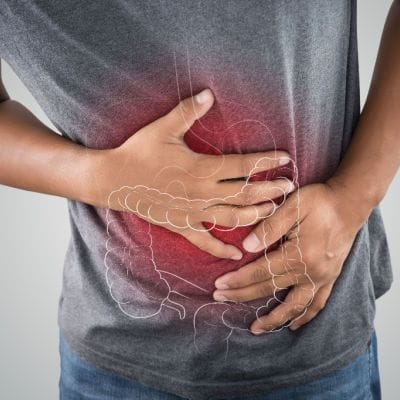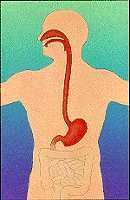 OVERVIEW
OVERVIEW
About 16 of 100 adults in the US will experience a high frequency of constipation each year. Adults over 60 are 33.5% more likely to experience this condition. Constipation is not actually well-defined medically, and there are various definitions of this condition that might be used to describe a patient’s experience with gastrointestinal discomfort.
Generally speaking, this condition is defined as having fewer than three bowel movements a week. This is not an uncommon condition for all people to experience at one time or another due to changes in diet, travel, medications, and other external causes. However, if the condition persists, there needs to be an effort to identify the underlying condition that is causing your constipation.
Symptoms of Constipation
The symptoms of constipation can vary in severity, from simple discomfort to severe pain and nausea.
- Hard or lumpy stools
- Passing fewer than three stools a week
- Straining to have a bowel movement
- Feeling like there is a blockage in the rectum
- Feeling like stool cannot be fully eliminated from the rectum
- Needing to empty the rectum through the use of the hands on the abdomen or a finger in the anus.
What Causes Constipation?
Constipation can be caused by a variety of conditions that range in seriousness. The most common reason is that stool is moving too slowly through the GI tract. Sometimes constipation can occur as a side effect of a medication. Dehydration can be a common reason for this symptom of constipation. Besides dehydration and dietary issues that can cause constipation, there are some other reasons for this condition:
- Colorectal cancer
- Narrowing or obstruction of the colon
- Rectocele (rectal bulge through the back of the wall of the vagina)
- Damage to the nerves in the GI tract
- Stroke
- Spinal cord injury
- Weakened pelvic floor muscles
- Diabetic complications
- Irritable bowel syndrome
- Pregnancy
- Thyroid disorders
- Neurological disorders such as multiple sclerosis and Parkinson’s disease
Treatment for Constipation
Treatment for this condition is often multi-faceted. You will be encouraged to drink more water and increase the fiber in your diet. Various medications can encourage bowel movements that are sold over the counter, such as fiber supplementation or laxatives. There are also prescription medications that stimulate bowel movements when more conservative measures are not enough.
If you experience a sudden change in bowel movements, rectal bleeding, or weight loss, you should consult with your physician for further evaluation and treatment.
Disclaimer:
The information on this website is provided for educational and information purposes only and is not medical advice. Always consult with a licensed medical provider and follow their recommendations regardless of what you read on this website. If you think you are having a medical emergency, dial 911 or go to the nearest emergency room. Links to other third-party websites are provided for your convenience only. If you decide to access any of the third-party websites, you do so entirely at your own risk and subject to the terms of use for those websites. Neither Arnon Lambroza, M.D., P.C., nor any contributor to this website, makes any representation, express or implied, regarding the information provided on this website or any information you may access on a third-party website using a link. Use of this website does not establish a doctor-patient relationship. If you would like to request an appointment with a health care provider, please call our office at 212-517-7570.

 OVERVIEW
OVERVIEW

